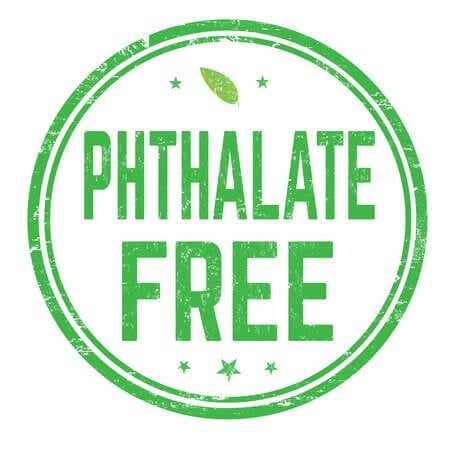Many newer sex toys don't contain phthalates (much to the delight of health-conscious consumers everywhere). However, if you've never heard about phthalates, you might wonder what all the fuss is about - and whether you should be concerned about any of the toys in your current collection.
Phthalates are a type of "plasticizer," a chemical that makes the plastic more durable and flexible. They're found in everything from flooring to soaps. If you use plastic products regularly, you come into contact with phthalates every day.
Even if you actively avoid plastic, you encounter phthalates whenever you drive your car or use certain hair care products. Over time, phthalates can accumulate in your body, although it's not exactly clear whether this has a direct effect on your health (more on this in a minute).
The Centers for Disease Control and Prevention (CDC) administered a study that found "measurable levels" of phthalate metabolites in Americns'Americans' representative sample. According to the CDC, this indicates that "phthalate exposure is widespread in the U.S. population."
Understanding the Health Risks of Phthalates in Sex Toys

So, what do phthalates do? Is exposure necessarily dangerous? The quick answer is that we're not entirely sure. Most research shows that these chemicals are safe at low levels, and the CDC notes that the presence of phthalate metabolites doesn't necessarily mean that a person is susceptible to an adverse reaction. However, phthalates may cause reproductive harm in large amounts.
Studies conducted through the late 1990s and early 2000s linked phthalates with diminished sperm counts and limited sexual development. Little research suggests that phthalates could interfere with the way that our bodies produce or process testosterone. This could be a significant concern for pregnant women, and sex toys with phthalates might be particularly problematic since they directly expose the genitals to these chemicals.
The EPA has also identified phthalates as a potential carcinogen. No studies have definitively linked the chemicals to cancer or other life-threatening diseases, but several countries have taken steps to ban phthalates; for instance, the United States has permanently banned three types of phthalates from being used in children's toys, and the bans are enforced through third-party testing and certification. Three other phthalates are temporarily banned, but adult toys don't qualify for these restrictions.
Does My Sex Toy Contain Phthalates?

The most common phthalate used in sex toy production is di-2-Ethylhexyl phthalate, often referred to as "DEHP." It's one of the three chemicals permanently banned in children's toys. Unfortunately, there's no way to tell if an adult product uses this chemical or any other chemical unless the manufacturer declares that the product is "phthalate-free" or "DEHP-free."
Here's the good news: manufacturers know that consumers are worried about phthalates, and they're taking steps to eliminate these chemicals from their production processes. Many of the products on our website don't contain phthalates, and when possible, we post phthalate information on our product feature lists. This gives you an easy way to compare different options to find a safe, fun toy.












